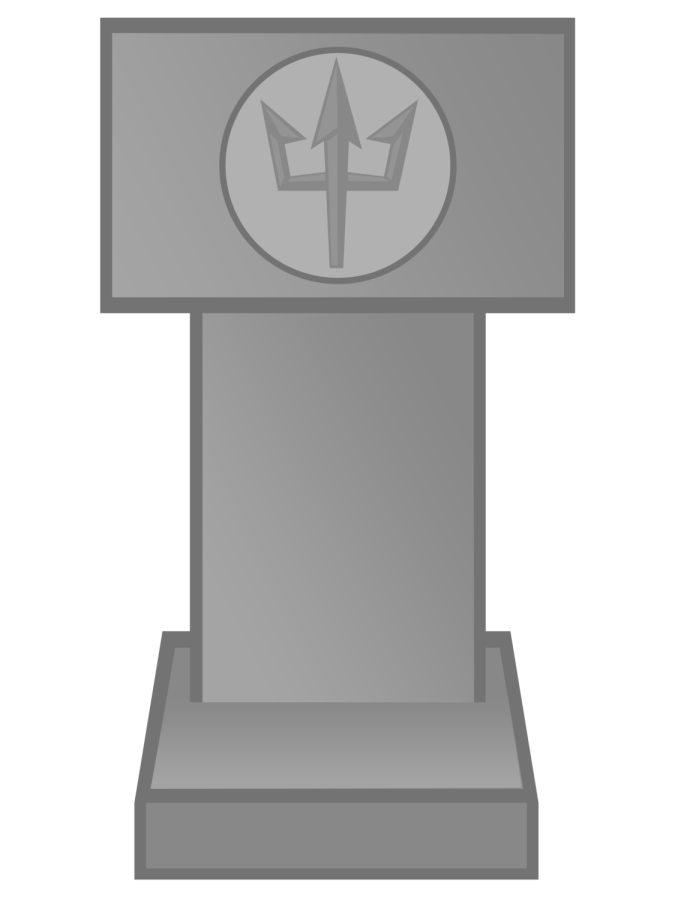“instead of this nonsense why don’t you give me some of your data to play with, and if I haven’t done something cool by the end of the day, we’ll go our separate ways.”
Zombie brain expert. Data evangelist for Uber. And, according to his personal website, an “annoying smartass.”
Bradley Voytek, assistant professor of computational science and neuroscience at UCSD, has spoken in places such as TEDx and Sci Foo. His research has appeared in publications such as The New York Times, Forbes and Washington Post.
“Oh wow, I’ve got tons of crap to say about science, data science and whatever else, though I’m not sure it’s worth listening to,” an enthusiastic Voytek told the UCSD Guardian. “I mean, my life is an n of one, so it’s all anecdotal, right? Nothing about me, my experience, or my life is in any realistic way generalizable to anyone else.”
In 2013 Voytek started working as a data scientist for Uber. While working there, one thing that piqued his interest was demand prediction — figuring out how to place cars where people will want them and minimizing pick-up times. However, his most memorable moment occurred when he interviewed for the job.
“When I interviewed for the position I was asked to go up to the whiteboard and do some coding/data/theory challenges,” Voytek said. “I refused. Instead I told them, ‘you’re hiring me to uncover interesting insights using your data; instead of this nonsense why don’t you give me some of your data to play with, and if I haven’t done something cool by the end of the day, we’ll go our separate ways.’”
He got the job, and worked there in 2013. In addition, Voytek studied as a postdoctoral fellow from September 2011 to February 2014. After this, he transitioned to a position as an assistant professor at UCSD , starting in March of that year. Currently he is the director of the Cognitive and Neural Dynamics Laboratory.
In addition to being a researcher, Voytek is teaching Introduction to Data Science this quarter, a course in the cognitive science department that explains ideas such as data mining, machine learning and graph theory. The class has over 200 students, a sharp increase from 22 during Fall Quarter 2014. Voytek believes this is because data science stands out from traditional computer science.
“Data science, as a job, combines all the most fun, creative parts of math, science and computer engineering/programming,” he said. “[In the 1960s and ‘70s], computer science was new and exciting, with a lot of opportunities to blaze new vistas of business, technology and science. Outside of academia and major research-oriented businesses such as Facebook and Google, modern computer science, to many, is ‘programming.’ It’s a strong, well-paying, good job, but it can lack the excitement of exploration, discovery and play that got a lot of people into the field in the first place.
Apart from academia, Voytek loves to do research on zombies. A current advisor for the Zombie Research Society, he says to not worry about the topic of zombies, as places such as CDC use the topic of zombies to get the word out about food storage and planning evacuation routes in case of emergencies.
“OK, let me get this out of the way: No, you should not be worried,” Voytek said. No, zombies cannot be real. That said, thinking about the zombie apocalypse can be helpful. For example, the CDC uses the zombie apocalypse as a way to get the word out about disaster preparedness, and it was wildly successful. So in that sense, being ‘serious’ about it is worthwhile.”
Voytek wants students to feel confident enough to reach out to their professors and not be scared to ask for help, because he believes that UCSD is a top research university.
“I know that students have this impression that us professors put research first and teaching a distant second, but that’s not absolutely the case for the vast majority of us,” he said. “Reach out to us, come to our office hours, ask us about our research, ask about research opportunities and internships. Put yourself out there and try something new, because once you leave college, you most likely won’t have the same opportunities again.”







